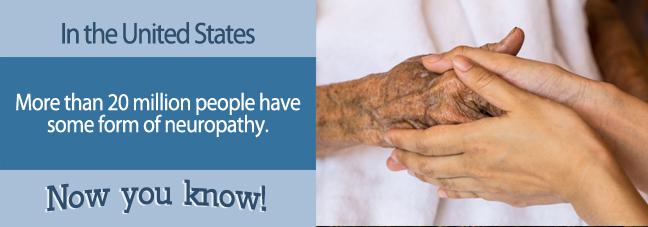Many of the physical ailments described in the Social Security Administration (SSA)’s Blue Book describe specific medical conditions. On the other hand, neuropathy represents a general disorder that is the result of damage to your peripheral nerves. Often diagnosed in the feet and hands, neuropathy can negatively impact other parts of the body. Pain, weakness, and numbness are the most common symptoms of this potentially disabling disease.
The symptoms of neuropathy can be detrimental to your ability to perform everyday tasks. When you experience the destructive disease, your only recourse is to obtain Social Security Disability (SSD) benefits. Approval of an SSD claim will give you financial security, but you have to submit plenty of medical evidence that you suffer from a form of neuropathy. Appropriate medical records help SSA administrators determine if your case is indeed disabling. Make sure to submit as much valid medical documentation as possible to convince the SSA to approve your SSD benefits claim.
The SSA Blue Book: Your Guide to SSD Benefits
You should not play a guessing game with the SSA when it comes to submitting a claim for SSD benefits. The federal agency presents the Blue Book in both digital and printed form to explain exactly what medical documentation you need to prove that a specific condition such as neuropathy has rendered you unable to work and support your family. Some of the medical documentation required to receive SSA approval for SSD benefits includes your medical history and a detailed description of the treatments prescribed by your physician. The SSA Blue Book lists every known disease and illness that researchers have discovered to cause disabling medical symptoms.

What the SSA Requires to Prove Neuropathy
When you submit an SSD claim, you should not attempt to collect SSD benefits on your own. The SSA gives more credibility to SSD applications that include statements made by licensed physicians confirming the diagnosis and treatment of neuropathy. Your doctor statement should come from a specialist trained to detect the nerve damaging disease, as the SSA wants to read hard evidence presented by specialists of the various disabling medical conditions listed in the agency’s Blue Book.
According to the SSA website, the agency wants both medical and non-medical evidence that verify you suffer from a disabling case of neuropathy. Medical documentation should confirm the signs and symptoms of the disease, as well as findings in a laboratory presenting physical evidence. Imaging tests are especially important to present for proof of neuropathy, as doctors use CT, EEG, and MRI scans to demonstrate the flare up of nerves in the body that cause neuropathy symptoms. Any imaging tests performed to verify the presence of neuropathy must conform to clinical practices and the status of prevailing medical acumen. Documentation of the treatment prescribed for your neuropathy condition is also an important piece of medical evidence the SSA considers relevant. Any documented physical restrictions to your career and routine daily activities help bolster your SSD claim.
While your doctor statement and corresponding documented medical evidence give your SSD benefits claim more credibility, the fact remains that SSA denies many valid SSD applications. By working with a lawyer who specializes in SSD claims, you can fight back against an SSD claim denial. Your lawyer will have in-depth knowledge of what the SSA requires for medical evidence that addresses your neuropathy symptoms. Moreover, your Social Security lawyer will help you appeal any decision made by the SSA that rejects your SSD claim to receive financial security because of a debilitating disability.